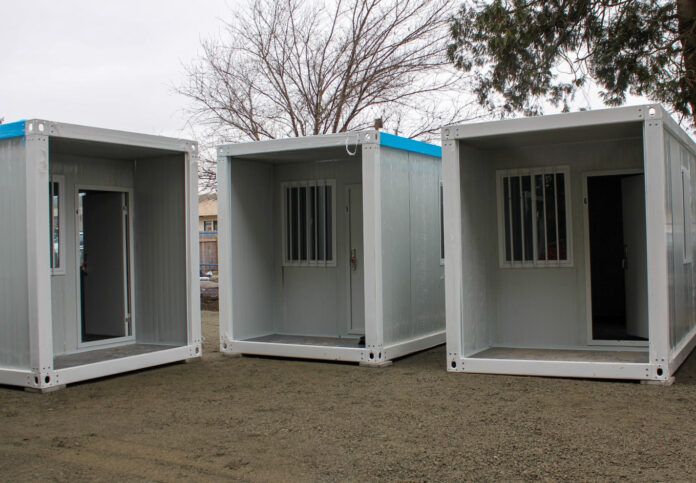As the Cowichan Housing Association and Lookout Housing and Health await approval of an extension of the temporary permit for the Village on Trunk Road, other communities in the province are observing and considering adopting the model.
Lookout’s Director of Operations for Vancouver Island, Lee King says proper housing is one of the most important steps to take when working with people who are unsheltered and may be struggling with mental health and substance use issues.
King says he received inquiries from different parts of BC and feels “the model is considered to be successful enough that it will be transferred to other communities.”
He says housing is the “chief social determinant of successful physical, mental and spiritual health outcomes,” and the support services offered by the Village, ranging from food, counseling, as well as other assistance, has resulted in a “big change in the folks who come there.”
King stresses that working with businesses and people in the area, and efforts to mitigate any negative impact on the neighbourhood, have gone a long way to helping make it a success.
The Village is a temporary home to 34 people and is managed and staffed by Lookout in cooperation with other community agencies, providing shelter and support for people facing mental health challenges or substance abuse.
King praises Nexus Modular Solutions of Cobble Hill for the units it manufactured for the site, which are larger than the original sleeping cabins built for the Cowichan Valley’s COVID-19 sheltering camps that opened in 2020.
Meanwhile, a United Church Minister is proposing that local councils allow churches to help end the cat-and-mouse lifestyle of parking on community streets for people living in their RVs.
Keith Simmonds with Duncan United Church has proposed the use of church parking lots and says there may be other options, such as allowing groups of two or three per parking lot in local communities.
He knows of half-a-dozen people living in recreational vehicles and has heard from others that many more are forced to live this way throughout the Cowichan Valley.
Simmonds says the people who have been to the Church to talk about trying to find a place where they can park without being harassed are sometimes working people who hold down reasonably decent jobs.
However, he says they simply can’t find an affordable place to live in a market with a near-zero vacancy rate.
He says others may be on disability income, which is often too low to afford to pay rent as well as other living expenses.
“Why our government can’t find a way to house people who are living on the street, living in RVs – in some cases working people, in some cases people that they fund but won’t fund enough to rent a place if they could find one – I wonder what it says about us.”
He says people sleeping in RVs on the streets not only face the threat of being ticketed by by-law enforcement officers but also being harassed by members of the public.
Councilors in Duncan and North Cowichan recently held a joint meeting where they decided to investigate ways of legally allowing people to accommodate people living in recreational vehicles.



